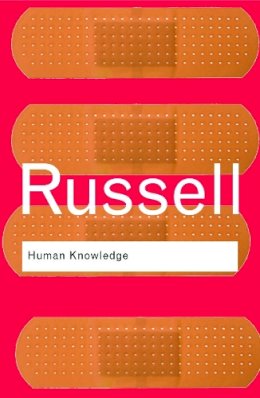9%OFF

Stock image for illustration purposes only - book cover, edition or condition may vary.
Human Knowledge: Its Scope and Limits
Bertrand Russell
€ 23.99
€ 21.94
FREE Delivery in Ireland
Description for Human Knowledge: Its Scope and Limits
Paperback. How do we know what we 'know'? How did we - as individuals and as a society - come to accept certain knowledge as fact? This title questions the reliability of our assumptions on knowledge. It investigates the relationship between 'individual' and 'scientific' knowledge. Series: Routledge Classics. Num Pages: 480 pages, black & white illustrations. BIC Classification: HPK. Category: (UP) Postgraduate, Research & Scholarly. Dimension: 215 x 139 x 34. Weight in Grams: 616.
How do we know what we "know"? How did we –as individuals and as a society – come to accept certain knowledge as fact? In Human Knowledge, Bertrand Russell questions the reliability of our assumptions on knowledge. This brilliant and controversial work investigates the relationship between ‘individual’ and ‘scientific’ knowledge. First published in 1948, this provocative work contributed significantly to an explosive intellectual discourse that continues to this day.
Product Details
Publisher
Taylor & Francis Ltd United Kingdom
Number of pages
480
Format
Paperback
Publication date
2009
Series
Routledge Classics
Condition
New
Number of Pages
480
Place of Publication
London, United Kingdom
ISBN
9780415474443
SKU
V9780415474443
Shipping Time
Usually ships in 4 to 8 working days
Ref
99-6
About Bertrand Russell
Bertrand Russell (1872-1970). The leading British Philosopher of the twentieth century, who made major contributions to the area of logic and epistemology. Politically active and habitually outspoken, his ethical principles twice lead to imprisonment
Reviews for Human Knowledge: Its Scope and Limits
‘The nearest thing to a systematic philosophy written by one who does not believe in systems of philosophy. Its scope is encyclopedic…a joy to read.’ – New York Times ‘His intelligibility comes of stating things directly as he himself seems them, sharply defined and readily crystallized in the best English philosophical style.’ - The Times Literary Supplement
